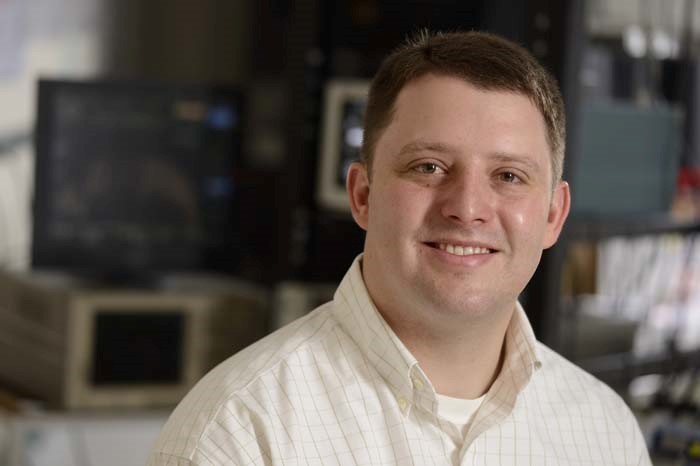Colloquia & Guest Speakers
From Extreme Materials to the Brain: Computational Imaging Systems for Measurement-Limited Applications
Prof. Mark Foster, Johns Hopkins University, Department of Electrical and Computer Engineering
Monday, November 25, 2019
3 p.m.
Goergen 101

Abstract:
In this talk I will discuss our research into leveraging computational imaging methods for overcoming traditional physical constraints on imaging performance in “measurement-limited” scenarios. Imaging systems can become measurement-limited under various conditions resulting in strict limits to the amount of image information that can be physically acquired. For example, in high-speed photography the imaging system is often limited in the number of measurements that can be acquired per second. In a similar vein, an ultra-small imager such as a micro-endoscope is limited by the number of measurements that can be acquired in a given cross-sectional area. I will discuss our recent research in applying optical signal processing and computational imaging to enhance imaging performance under such conditions. Specifically, I will discuss our research into ultrahigh-speed hyperspectral imaging for studying combustion dynamics of extreme materials as well as high-speed multiphoton microscopy and ultra-small minimally-invasive lensless micro-endoscopy for studying neural activity in the brain.
Bio:
Prof. Mark A. Foster is an associate professor in the Department of Electrical and Computer Engineering at Johns Hopkins University. In addition to his primary appointment in the Department of Electrical and Computer Engineering, Prof. Foster also serves as a fellow for the Hopkins Extreme Materials Institute. Prof. Foster received his B.S., M.S., and Ph.D. in Applied and Engineering Physics from Cornell University in 2003, 2007, and 2008, respectively. Additionally, he worked as a postdoctoral associate at Cornell before joining Johns Hopkins in 2010. His research interests are primarily in high-speed optical signal processing applied to optical communications/computation systems, optical imaging systems, and photonically-enabled sensors. He has published over 200 papers in peer reviewed journals and conferences and is an inventor on 9 patents for high-speed photonic technologies. His research is highly cited with over 9000 citations and his awards include the DARPA Young Faculty Award (2011), the ONR Young Investigator Award (2012), the NSF CAREER Award (2013), and the Johns Hopkins University Catalyst Award (2016).
Location: Goergen 101
Refreshments will be served.
